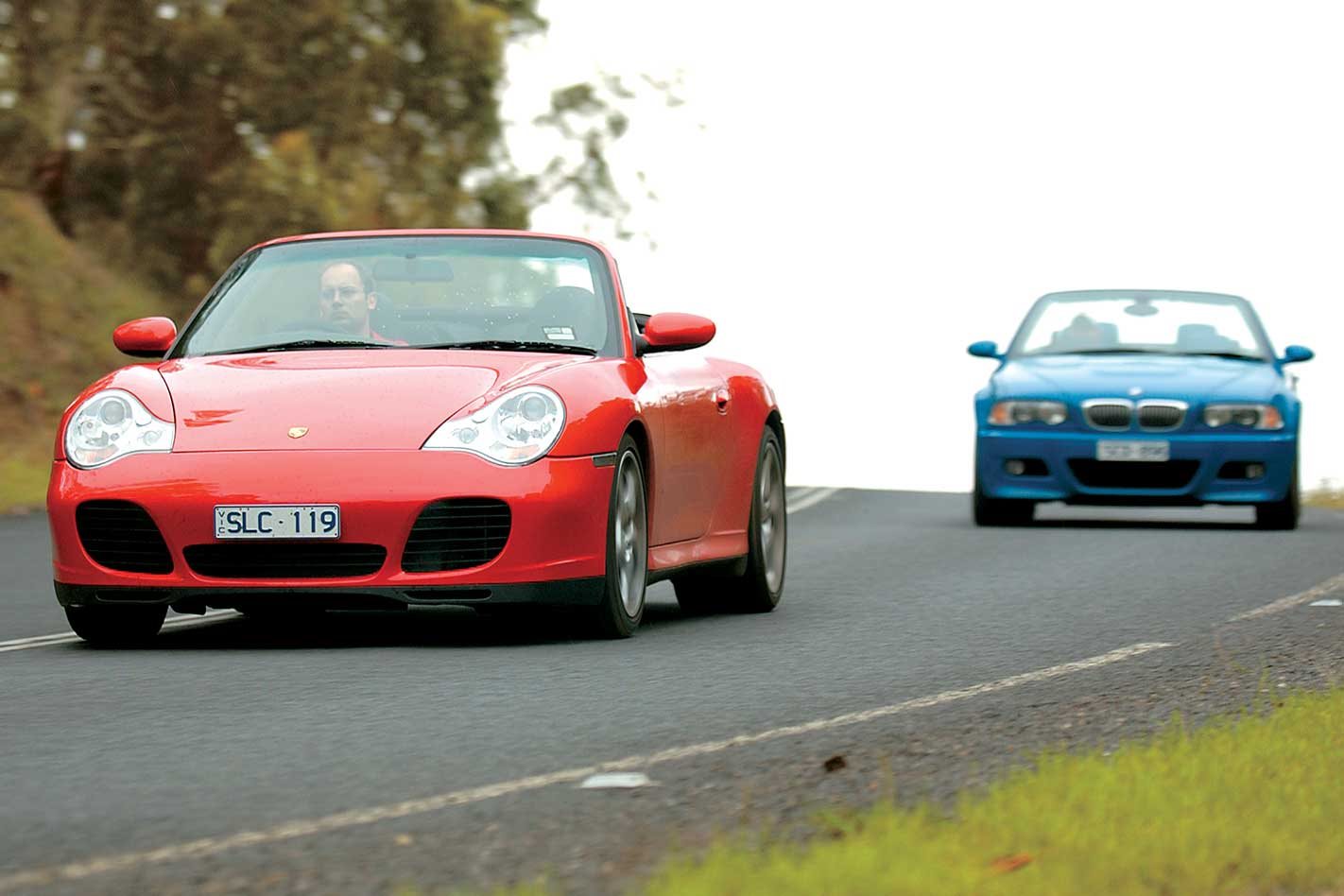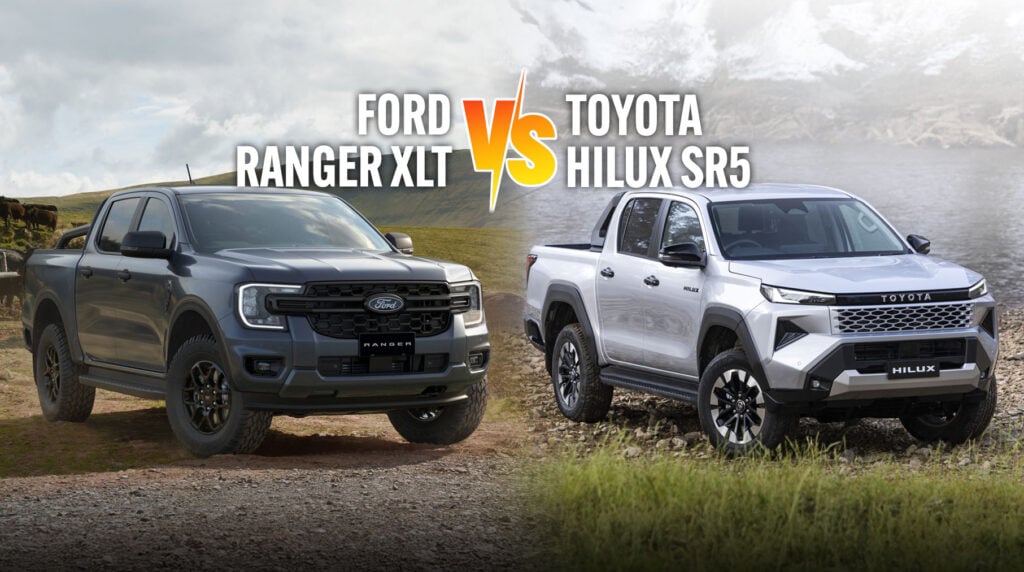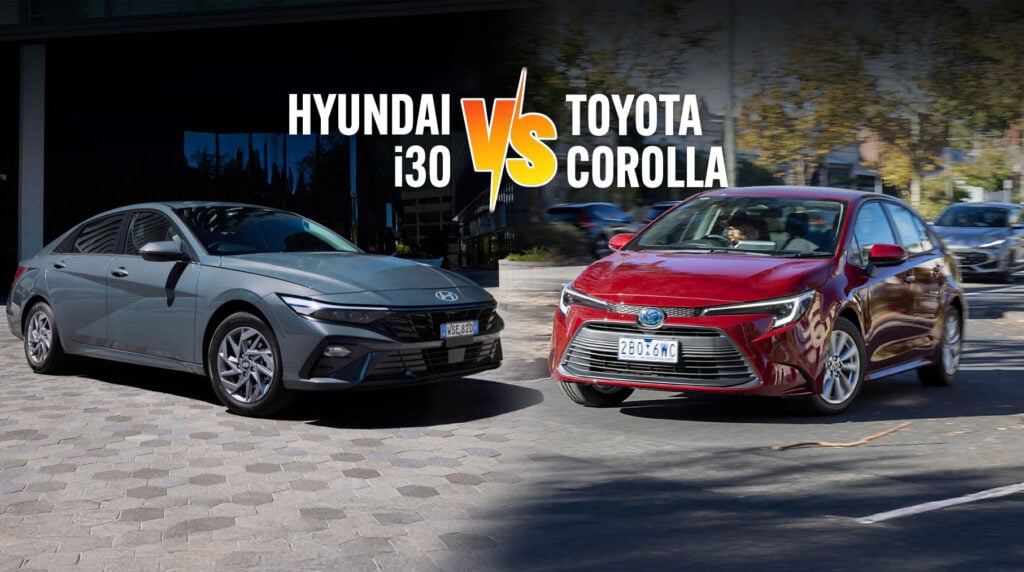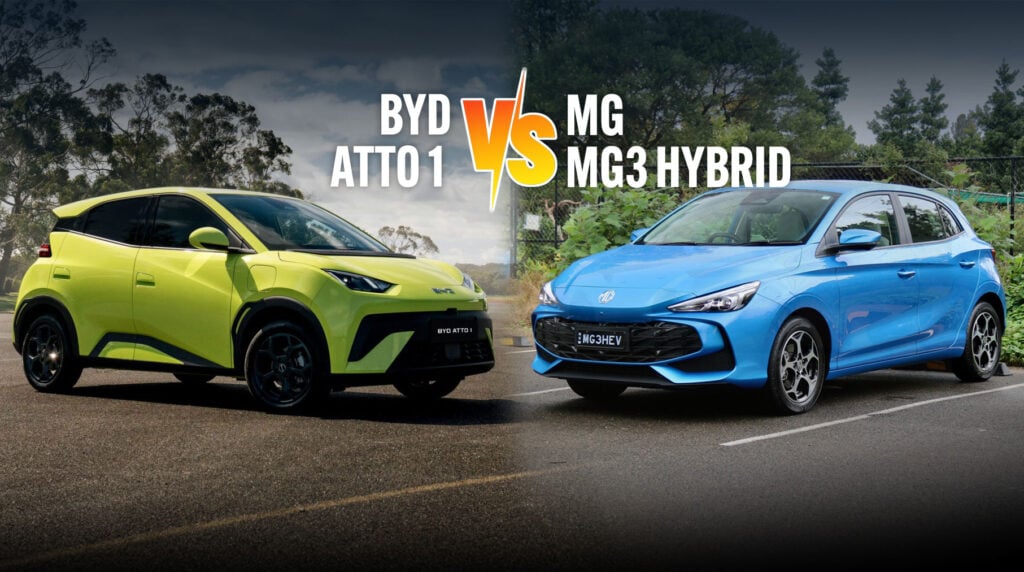Today is going to be one of those good days. Outside sits a redder than red Porsche 911 Carrera 4S Cabriolet. As soon as I gulp down my pre-dawn coffee I’ll be off to the local BP to top up with 98 RON premium and meet Marcus and BMW’s M3 convertible.
This feature was originally published in MOTOR’s March 2004 issue
We’re not setting out to compare these two as direct rivals; for starters there’s a hundred grand jump from the $158,000 M3 to the $259k Tiptronic 911. The Porsche is also all-wheel drive and strictly a two-seater (despite what the press kit claims), where the Bimmer is happy enough to carry four and has drive going to just the rear treads. We’re here mainly to see how convertible versions of our favourite coupes stack up when the tops are down.
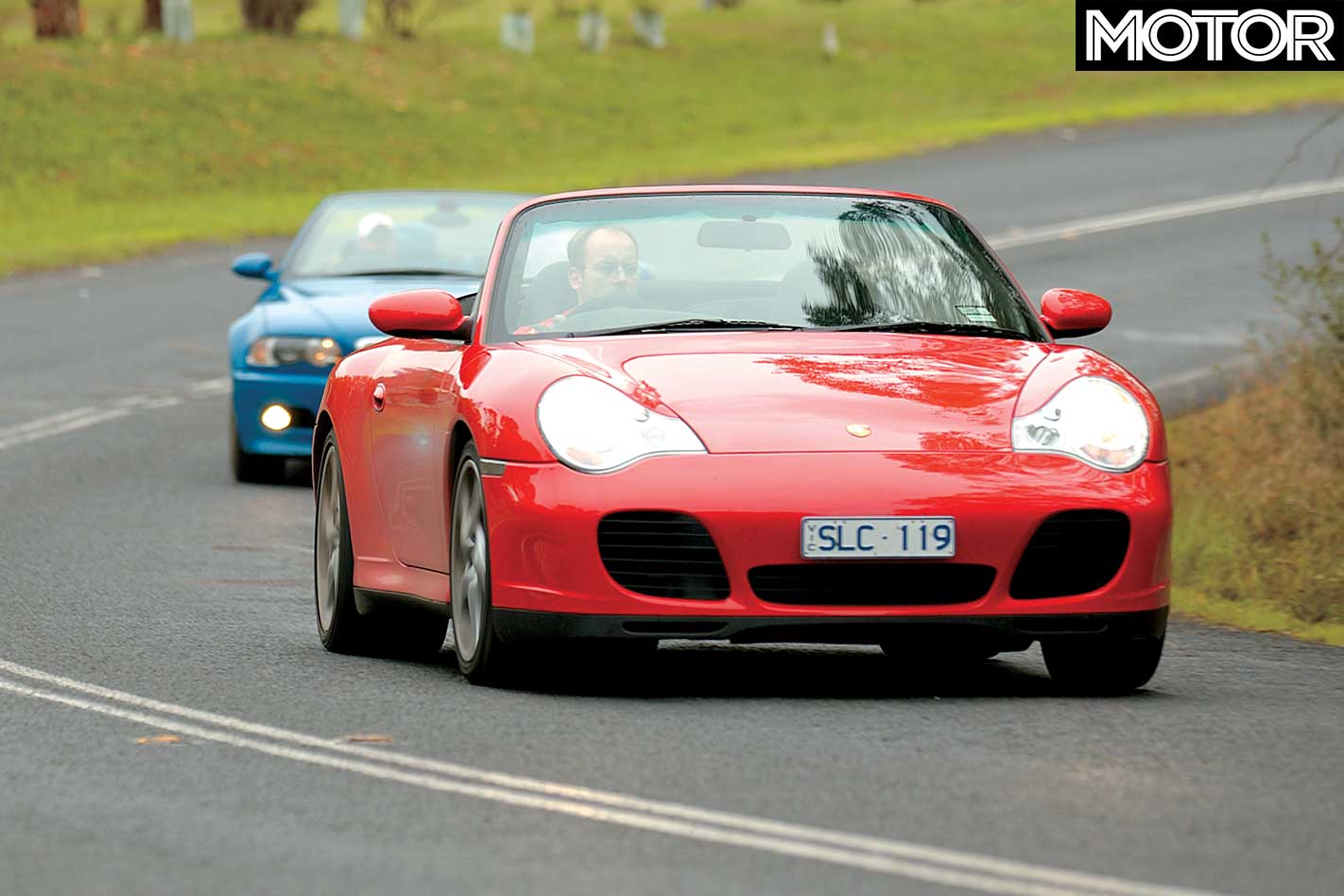
A quick call to the snapper and the decision is made to push on with the shoot. Besides, we’re going to be covering some serious kays to the south-west of Sydney, so maybe we’ll find some sunshine.
A hundred kays later I’m singing Crowded House’s Weather With You. The top of Macquarie Pass is cloaked in Hounds of the Baskervilles fog, visibility is down to a couple of car lengths and Robertson’s famous pie shop has disappeared. Oh well, at least we’ll find out if they leak.
Even on the gentle run down the coastal freeway, it’s easy to pick the chassis strength of the Porsche. Expansion joints are shrugged off in the 911 but really slap and shudder through the open-top M3. But for all its solidity, the Carrera is the lighter of the two: 1620kg to the BMW’s 1655kg.
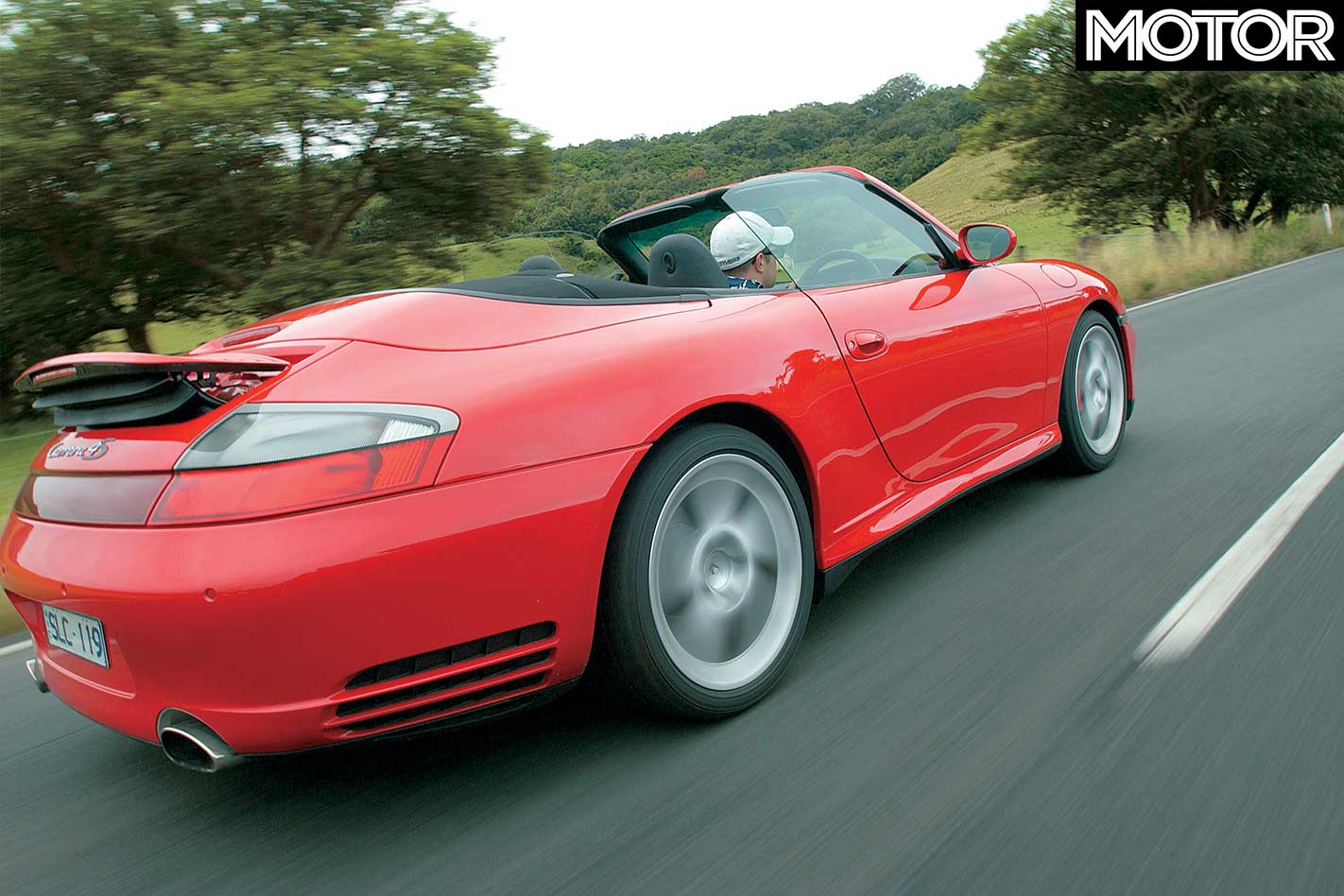
The M3 is up 160kg on the M3 coupe thanks to a combination of electronic folding soft-top and chassis bracing, including a front strut tower brace.
Impossibly grippy M3 CSL aside, Porsches always have the wood on BMWs when it comes to steering feel and front-end bite. And this is doubly true when the gas axe is applied to both.
The missing rigidity does the M3 no favours in the handling stakes. Corner entry understeer is masked by steering column movement and the transition to big-time oversteer happens in the pucker of a sphincter. A lot of the blame must be shouldered by the conditions, of course, but there’s a sneaking suspicion that the optional 19-inch rims aren’t exactly helping.
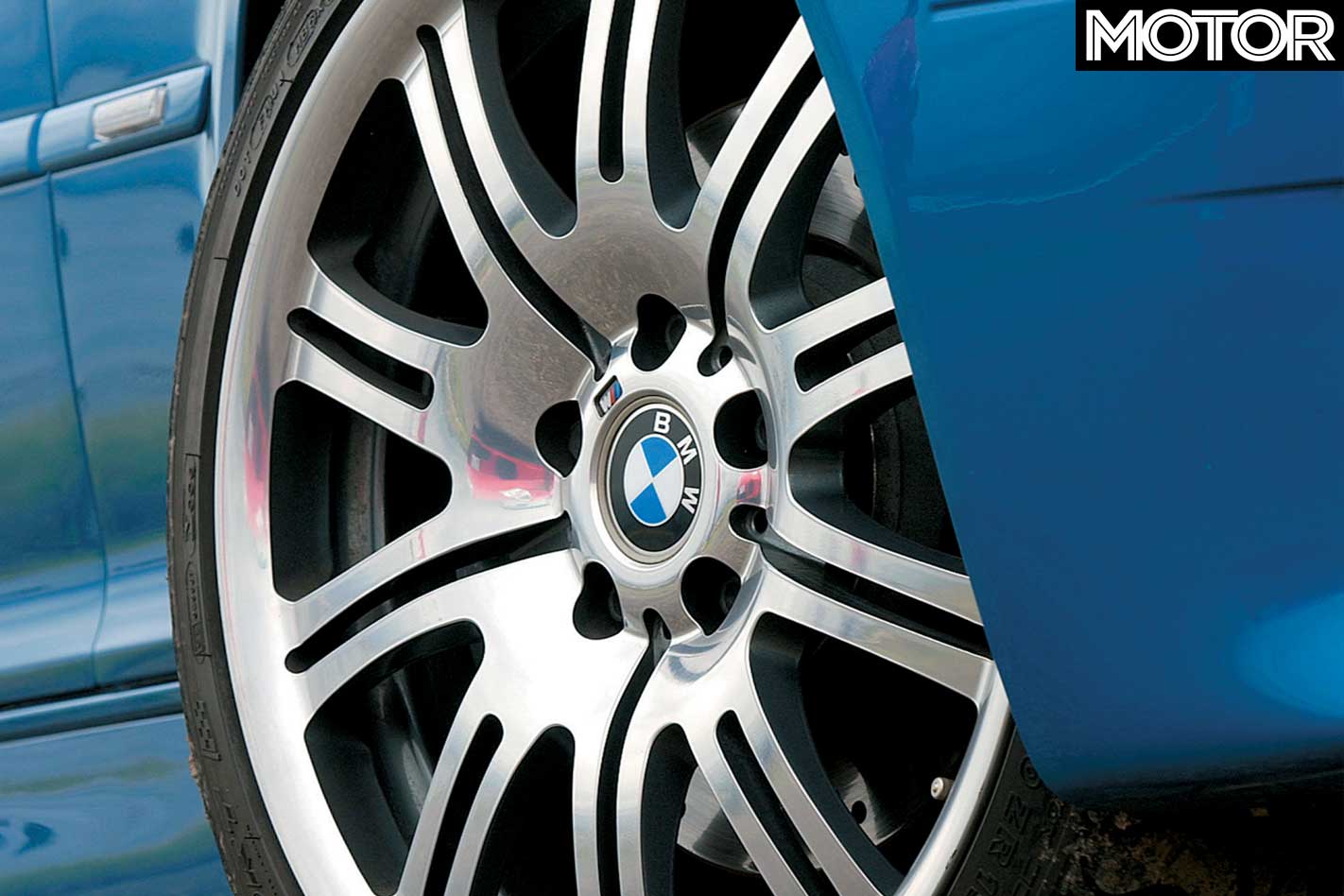
This is the first time we’ve driven an M3 (coupe or drop-top) with the bigger rolling stock, and while the Michelin Pilot Sport tyres aren’t any wider than the standard 18-inch hoops, they are marginally lower in profile – 225/40 R19 up front and 255/35 R19 rear.
They don’t shatter the ride quality as expected, but the rubber fails to key into the surface like the standard 225/45 R18 and 255/40 R18 Pilots. And especially so on the glistening, coarse-chip tarmac we’re playing on today.
The Porsche, on the other hand, simply refuses to relinquish its leach-like hold on the slippery tarmac. Turn-in grip is broadcast loud and early from the 225/40 ZR18 Bridgestone Potenzas, despite the often numbing effect an all-wheel drive set-up can have on steering feel.
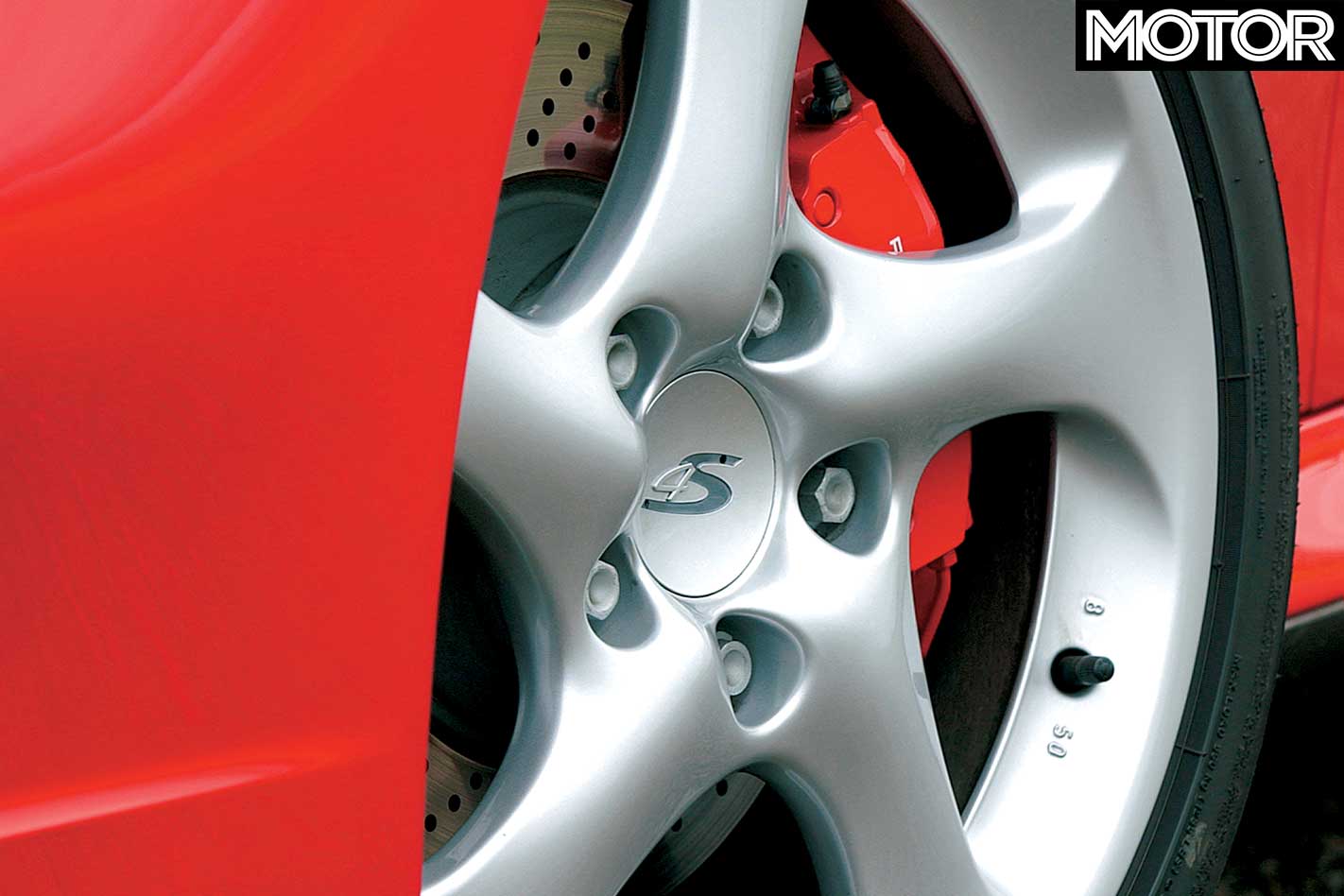
As soon as the corner starts to open, the fat bastard rear rubber (295/30 ZR18) is begging for more power; remember that in normal driving conditions 95 percent of available torque is rearward bound. And all of this with barely a flicker of interest from the Porsche Stability Management warning light on the dash.
Rush into a tight corner and the front end will pitter-patter wide of your chosen line. Same thing if you pick up the throttle too early or too hard. Try too hard and really overcook the chips and the front-mounted viscous coupling transmits up to 40 percent of drive to the front wheels. Still not getting the hint? As a final party trick, the PSM system, in conjunction with the engine management, will cut torque and apply appropriate braking force to any and all corners.
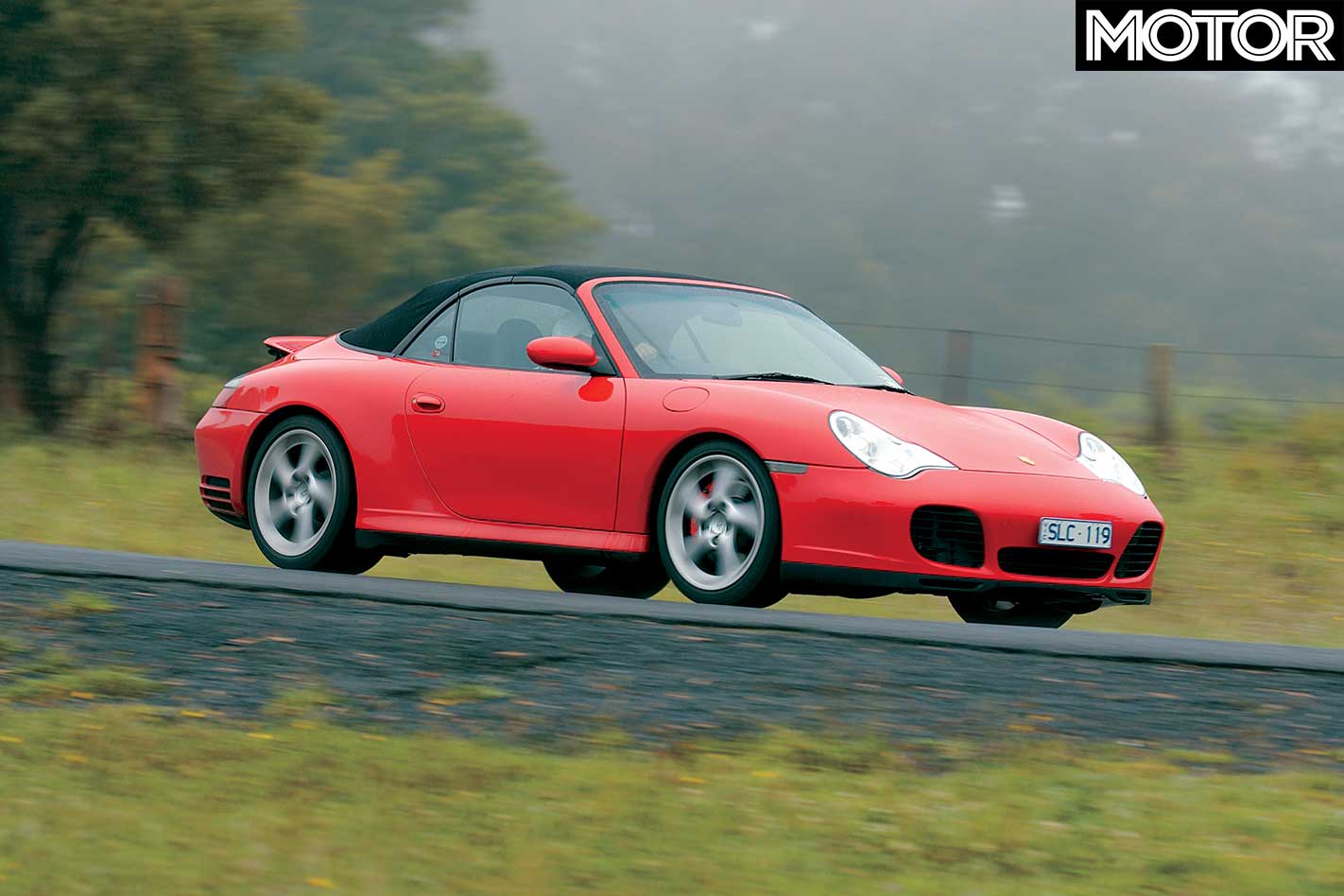
Oversteer? Only for the really committed or people who should be committed. And only after you’ve cut the electronic safety net.
The 911 also gets the gong when it comes to brakes. No real surprise when you remember the Carrera 4S uses the cross-drilled and ventilated discs and four-piston Brembo calipers pinched from the 309kW 911 Turbo. Like the steering, there’s plenty of feel and just the right amount of resistance. Fade? You’re kidding, right?
The Bimmer’s anchors are a carryover from the M3 coupe – cross-drilled and ventilated rotors with single-piston sliding calipers. In isolation they lack for almost nothing, but they can’t match the 911’s picks for the final five percent of pedal feel or bite.
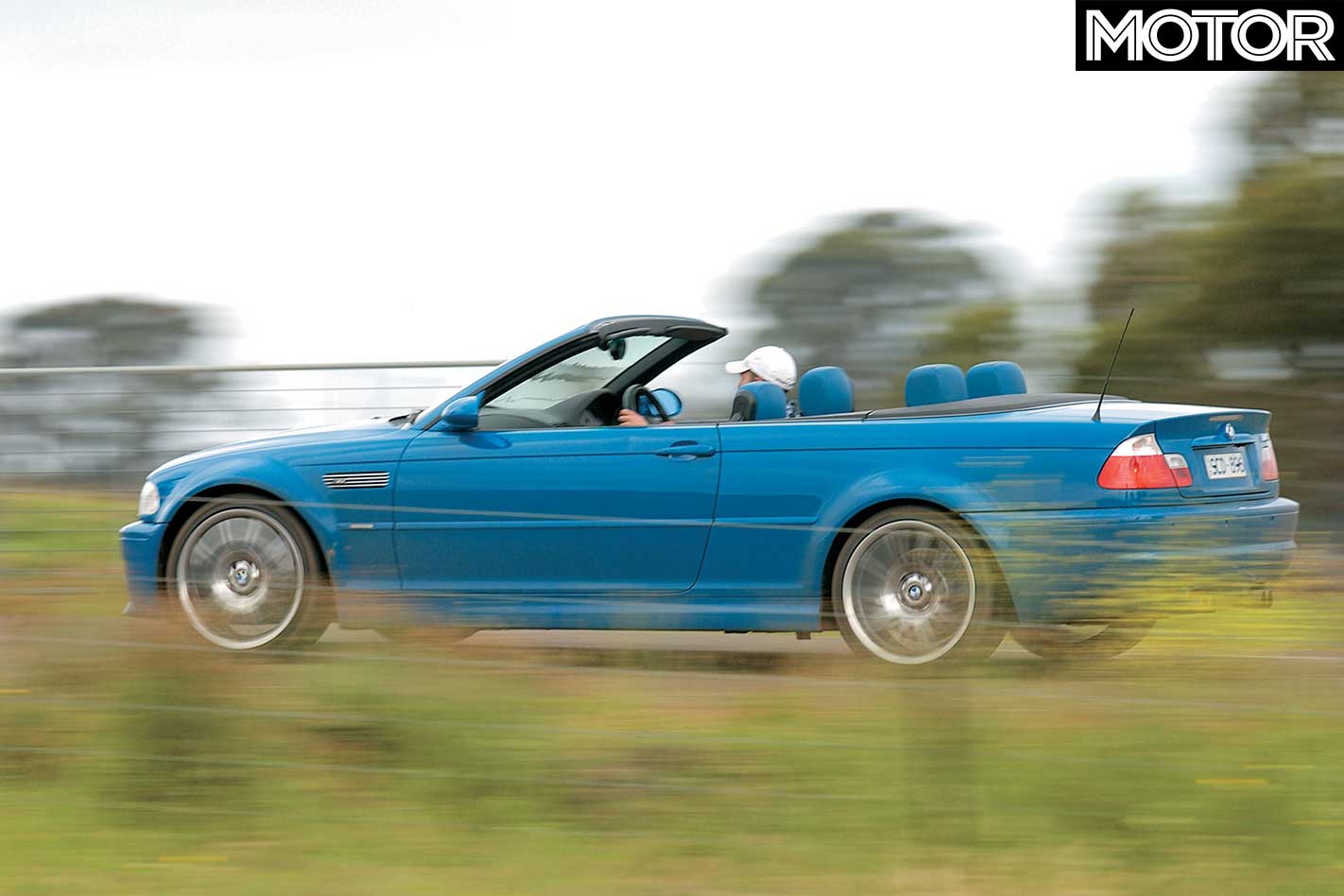
All this means that the Porsche can maintain a pace in all weather and road conditions that would have you second-guessing yourself in the BMW. Until today, I’d always thought the all-paw Carrera 4S, particularly in softer Cabriolet form, was overkill. Now I can understand why there’s such a high take-up rate when rich coves come to order their 911s.
This isn’t to say the M3 is not an absolutely cracking drive, especially on dry, smooth roads. The M3’s whip-crack engine response and faster-shifting SMG II sequential gearbox keep it in the hunt with the grippier Porsche.
Coupe or convertible, the M3’s heart and soul is the big nugget of precious metal between the strut towers. It gives away 400cc to the Porsche’s flat six, but the M3s 3.2-litre straight six belts out more power, is lineball on torque production and has a greater rev range. And if you think a relatively small- capacity engine with a max power stat line of 252kW at a reach-for-the-stars 7900rpm is going to be peaky, think again.
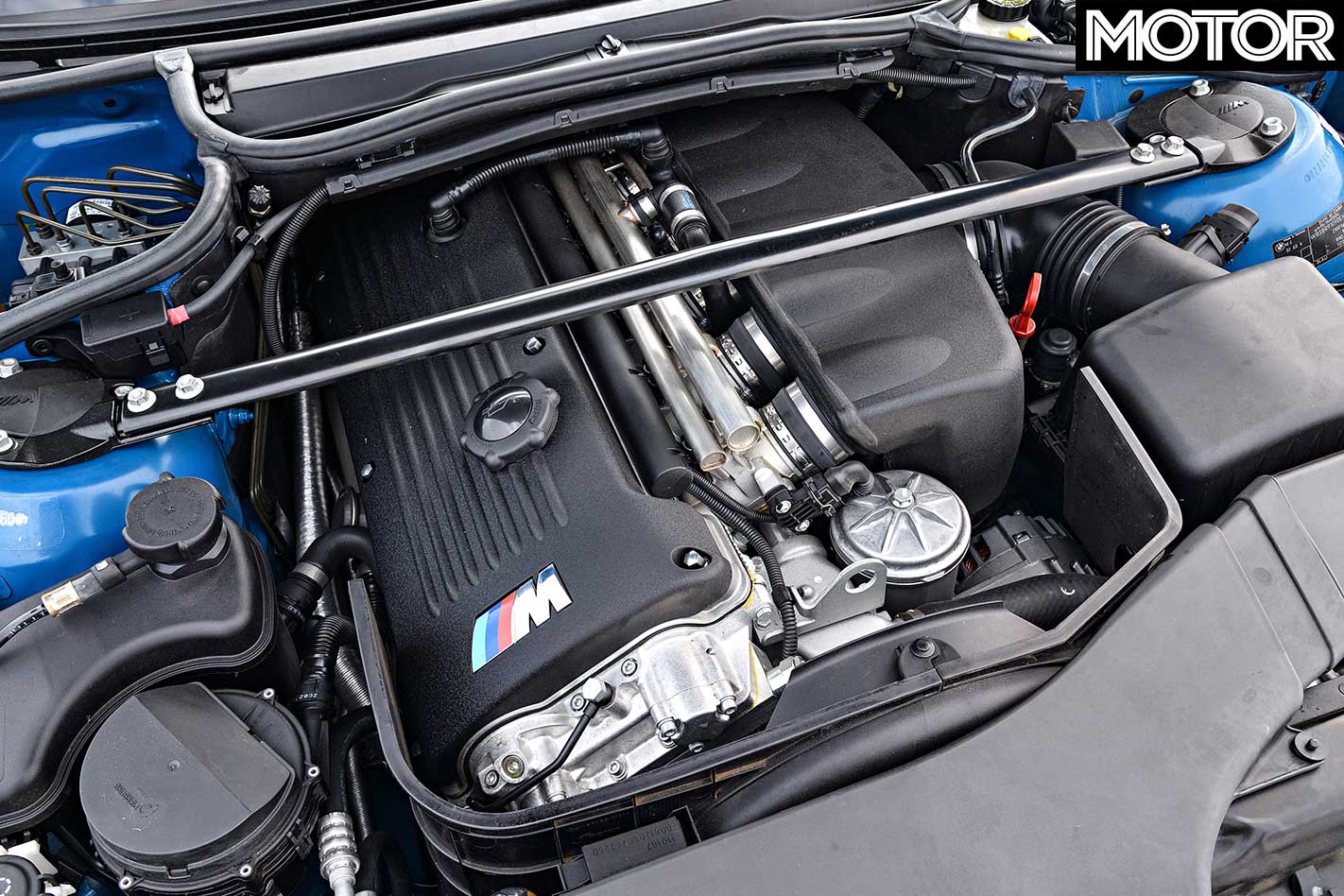
Eighty percent of torque is on tap from just 2000rpm, rising to 365Nm at 4900rpm. And an 11.5:1 static compression ratio, six throttle bodies and variable-length intake runners mean there’s always something available under your right foot.
Not everyone in the MOTOR office agrees on the value of sequential manual gearboxes. Morley reckons they’re the devil’s spawn, but most of us see them as an option to regular autos rather than a replacement for the good old stick shift. BMW’s SMG II (along with Lamborghini’s E-gear option for the Gallardo) pretty much represents the pinnacle of the two-pedal manuals.
There’s a passable full auto mode for when you’re being lazy or stuck in traffic, and variable shift speeds in the manual mode. To upshift, tug back on the stubby alloy lever or pull the paddle on the right of the fat-rimmed steering wheel. Downshift? Simply the opposite: push the lever or flick the left-hand paddle.
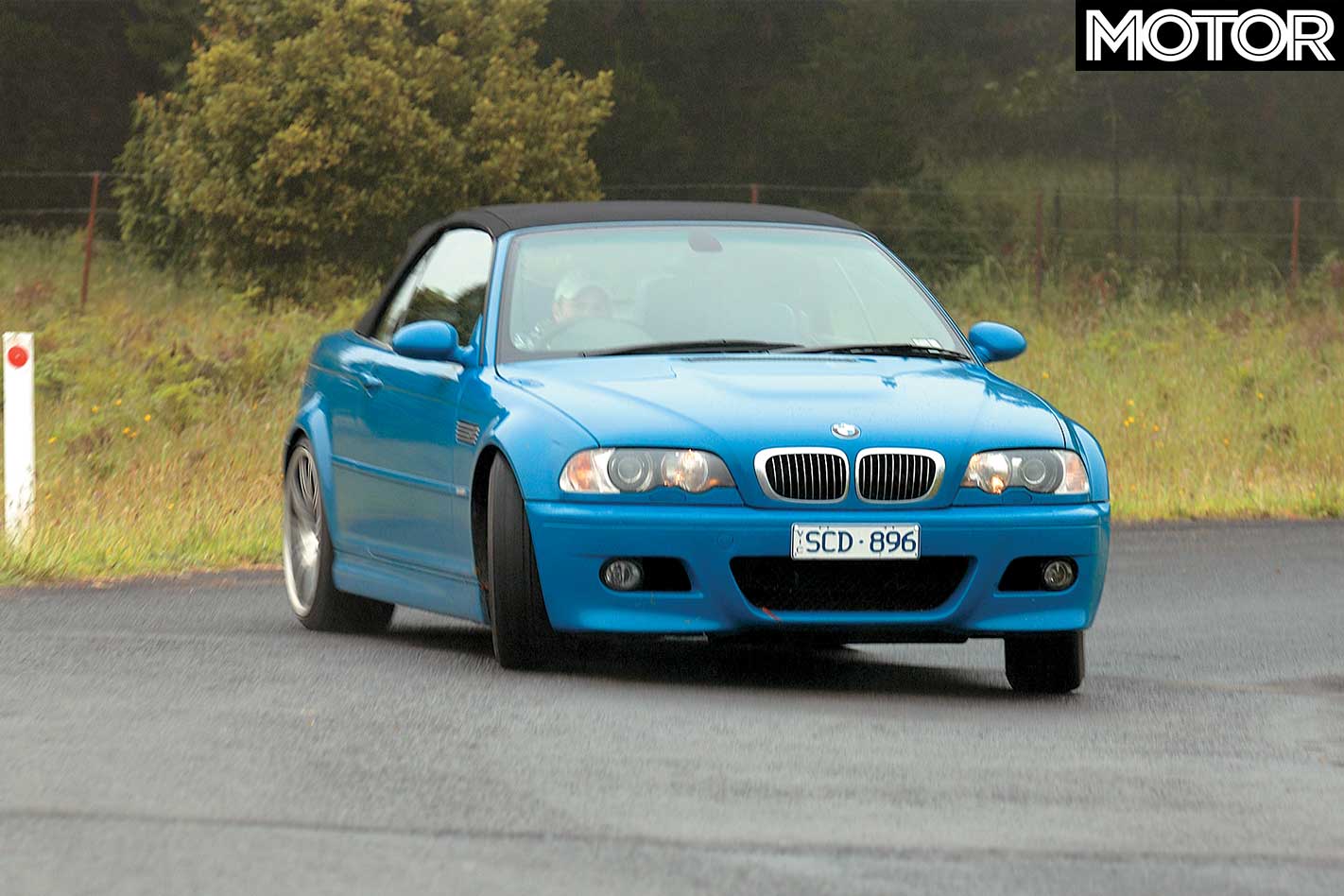
With the Sport button depressed for shorter, sharper throttle response and the adjustable shift speed of the SMG wound up to full hard, the M3 delivers off-the-scale thrills. With the top down, there’s access all areas to the howl from the straight six. Drive one of these puppies for more than five minutes and you start looking for tunnels to wail through at full noise just to hear the hammer of six pistons and 24 valves.
The note from the 911 couldn’t be more different but is no less inviting. On start-up the Carrera’s got that typically gruff boxer bark, settling to a throbby idle. By the time all 370Nm is partying at 4250rpm, the engine is yodelling away behind you. Keep the foot in and 235kW show up at 6800rpm, and you’ve still got another 500rpm before the limiter steps in and the Tiptronic ’box starts the song all over again with an upshift.
It’s important to remember the SMG is a manual ’box with an auto function and the Tiptronic is auto first, with manual control second. Left in D, it’ll use the torque of the flat six and move off in second and skip-shift through to top until it learns your driving style.
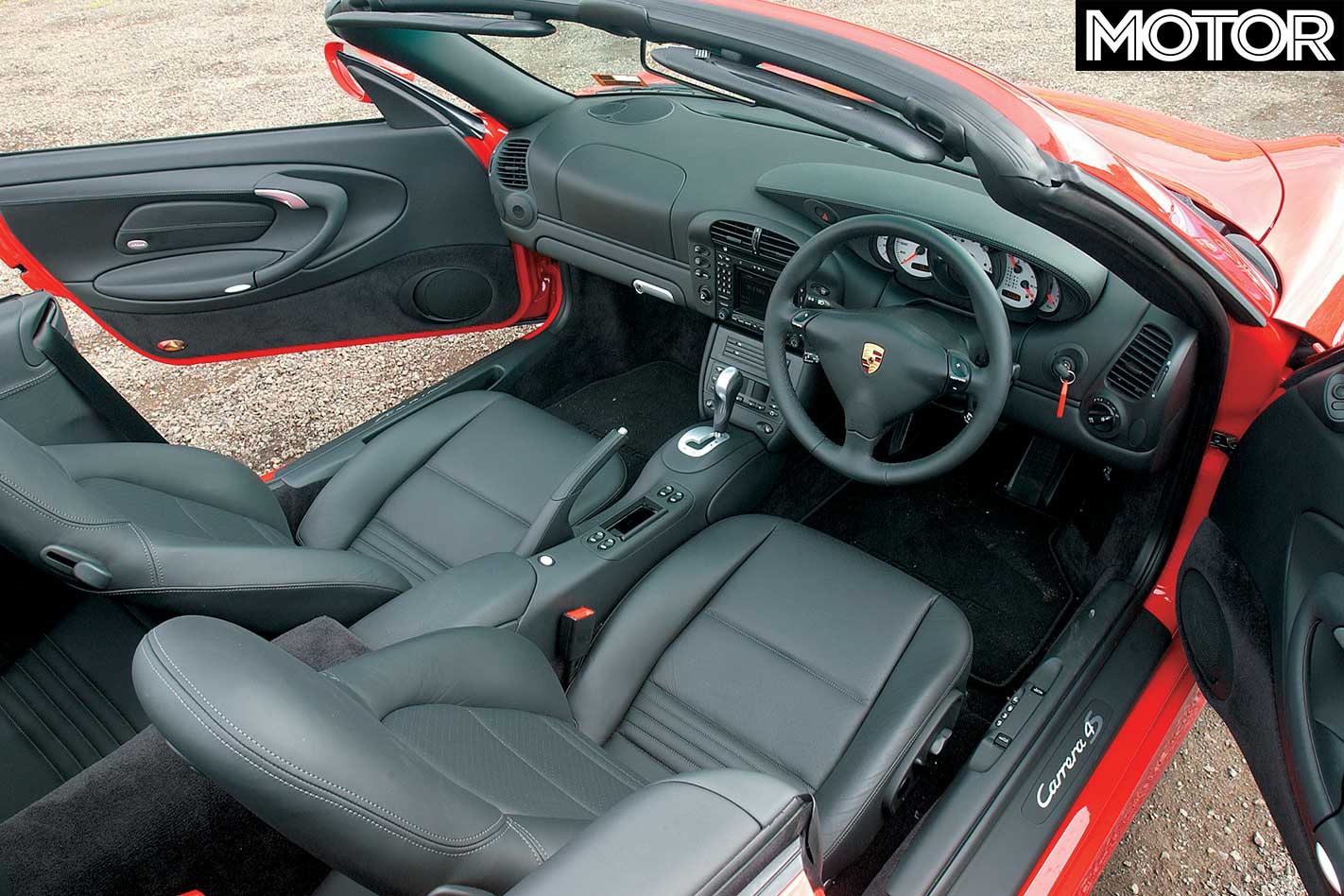
You can manually override at any time, even in drive, using the steering wheel-mounted switches, which is handy given Tiptronic’s reluctance to kick down on part-throttle openings. There’s actually nothing wrong with the Tiptronic ’box, but if you can drive stick, don’t deny yourself the tactile pleasure of a Porsche six-speed manual. You’ll save yourself the best part of 10 grand, too.
It’s pretty pointless to compare the two on price, and that was never our intention. After all, there’s a 100 grand gap through which you could drive a BMW 330Ci convertible. Put another way, you could fill your garage with a lidded M3 and a Boxster for the ask of the Carrera 4S.
Surprisingly, given the price chasm, the cheaper M3 is the more luxurious. Both offer heated seats, but the M3’s are more inviting and the interior makes you feel a bit more special. Of course, the Porsche badge on the 911’s wheel hub goes a long way to making your day. The fabric tops are remarkably quiet, even at high speeds, and wind noise and turbulence are well suppressed when they’re folded away.
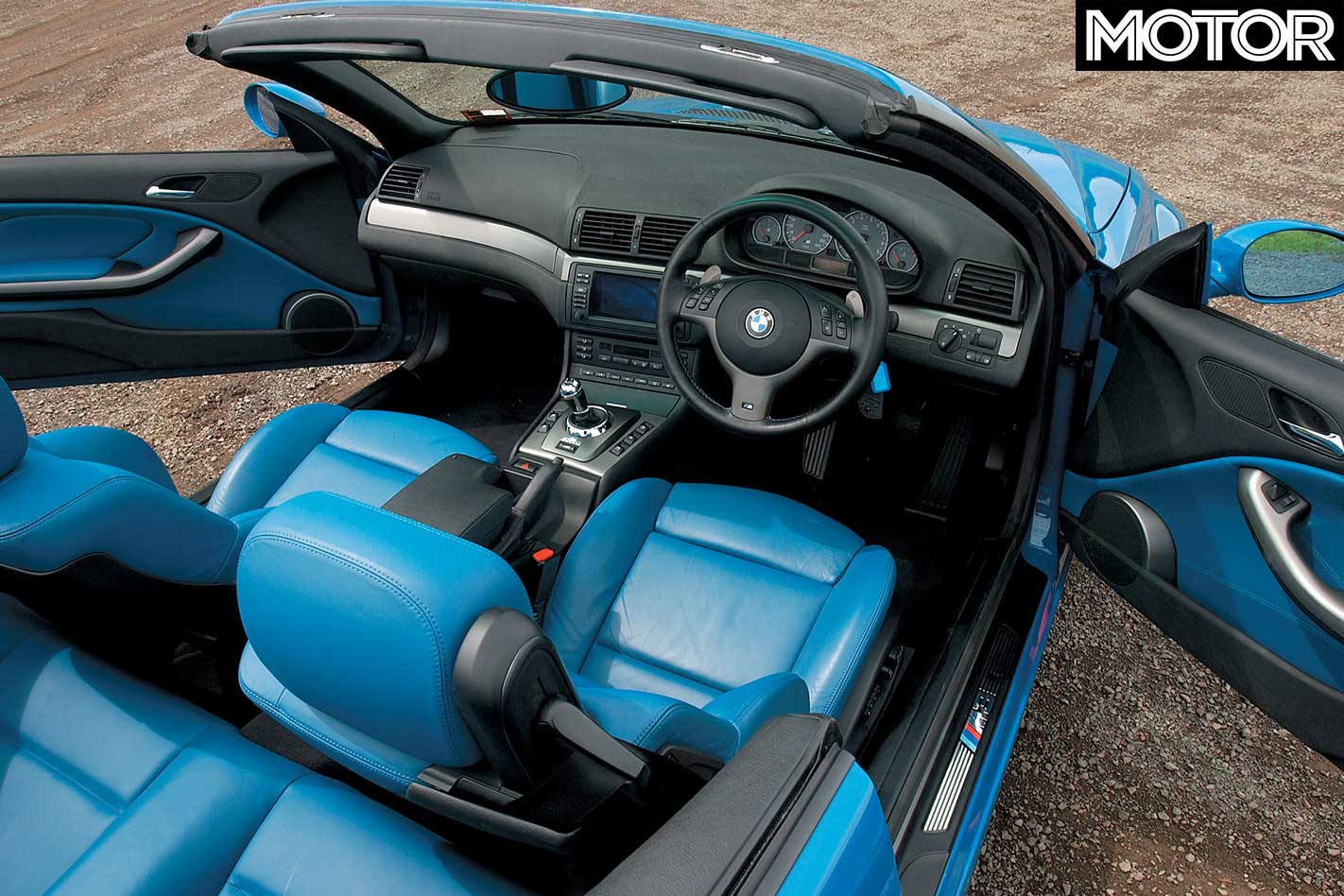
Neither is Falcon practical, but both have enough passenger and luggage space for a weekend away.
So are they as good as their tin-lid brothers? Yes and no. They’ll cost you a bomb more wedge and they don’t offer the handling prowess or outright performance set by the benchmark coupes. But they do let you drop the top, catch some rays and be one of the beautiful people.
Fast Facts
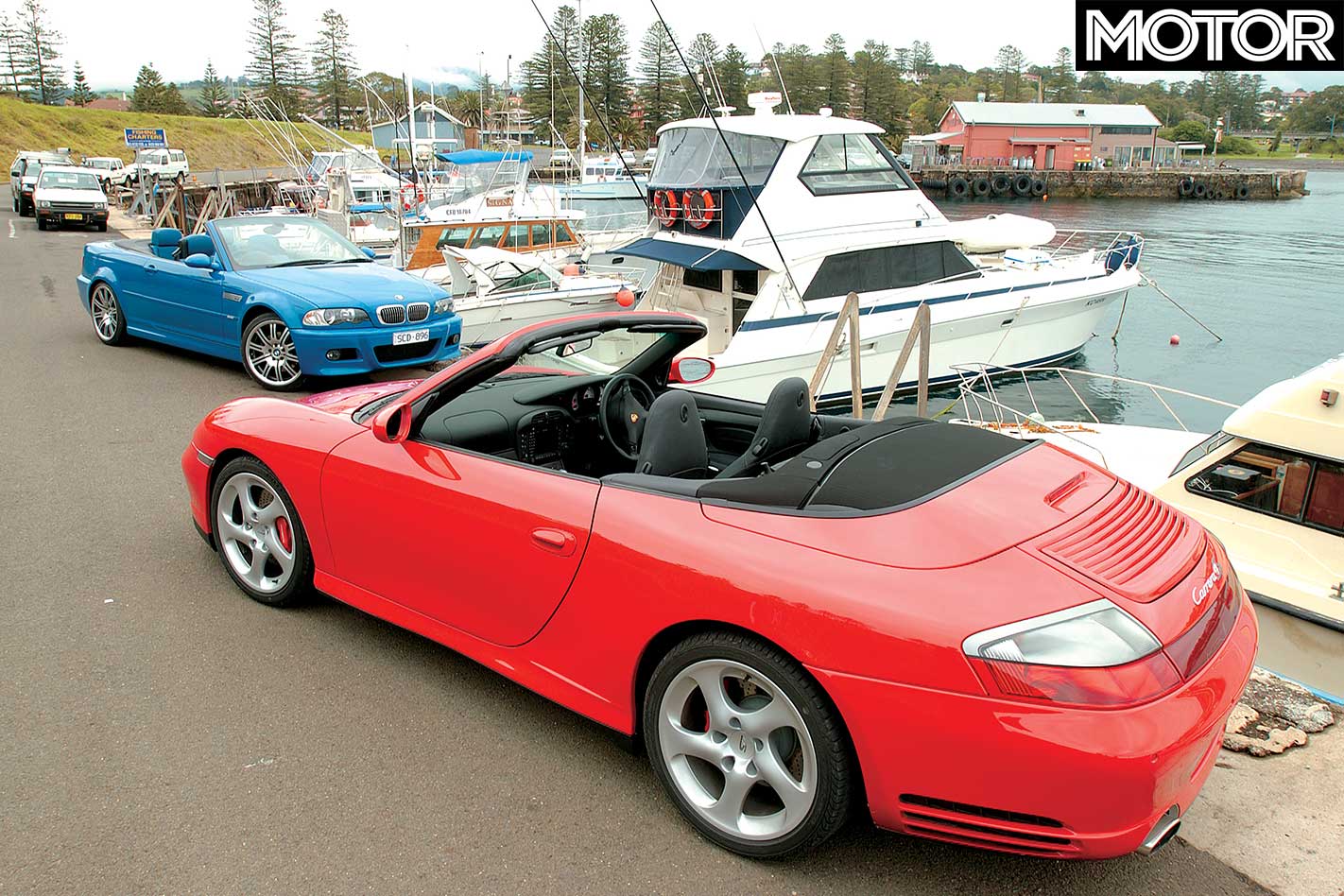
| u00a0 | 2004 Porsche 911 Carrera 4S Cabriolet | 2004 BMW M3 Convertible |
| BODY | two-door convertible | two-door convertibleu00a0 |
| DRIVE | all-wheel | rear-wheelu00a0 |
| ENGINE | rear-mounted 3.6-litre DOHC 24-valve flat-six | front-mounted 3.2-litre DOHC 24-valve inline-sixu00a0 |
| BORE/STROKE | 100.0mm x 76.4mm | u00a087.0mm x 91.0mm |
| COMPRESSION | 11.3:1 | u00a011.5:1 |
| POWER | 235kW @ 6800rpm | u00a0252kW @ 7900rpm |
| TORQUE | 370Nm @ 4250rpm | u00a0365Nm @ 4900rpm |
| WEIGHT | 1620kg | 1665kgu00a0 |
| POWER/WEIGHT | 145kW/tonne | 151kW/tonneu00a0 |
| TRANSMISSION | six-speed automatic | six-speed sequential manualu00a0 |
| SUSPENSION (f) | MacPherson struts, coil springs, anti-roll bar | u00a0MacPherson struts, coil springs, anti-roll bar |
| SUSPENSION (r) | multi-link, coil springs, anti-roll bar | u00a0multi-link, coil springs, anti-roll bar |
| L/W/h | 4435/1830/1295mm | u00a04492/1780/1370mm |
| WHEELBASE | 2350mm | u00a02731mm |
| TRACK | 1472mm (f); 1528mm (r) | u00a01508mm (f); 1525mm (r) |
| BRAKES (f) | 330mm ventilated discs, four-piston calipers | 325mm ventilated discs, single-piston calipersu00a0 |
| BRAKES (r) | 300mm ventilated discs, two-piston calipers | 328mm ventilated discs, single-piston calipersu00a0 |
| WHEELS | 18 x 8.0-inch (f); 18 x 11.0-inch (r), alloy | u00a019 x 8.0-inch (f); 19 x 9.5-inch (r) alloy |
| TYRES | Bridgestone Potenza S-03, 225/40 ZR18 (f); 295/30 ZR18 (r) | Michelin Pilot Sport, 225/40 ZR19 (f); 255/35 ZR19 (r) |
| FUEL | 64 litres, 98 RON PULP | u00a063 litres, PULP |
| PRICE | $259,200 | $158,000u00a0 |
Family Tree
Most punters know the current E46 BMW M3 is the third generation of the breed, but did you know there’s been at least nine different M3 models and countless variants over the years?
It started with the 2.3-litre E30 coupe, followed by the 2.5-litre four. And there was a very rare E30 M3 convertible. BMW also knocked up plenty of special editions, including the Johnny Cecotto model. The E36 started as a 3.0-litre six in coupe form. The 1996 update brought capacity to 3.2 litres. There were also sedan and convertible versions of the E36.
Capacity sneaked up 40cc for the 252kW E46 M3 coupe and convertible.
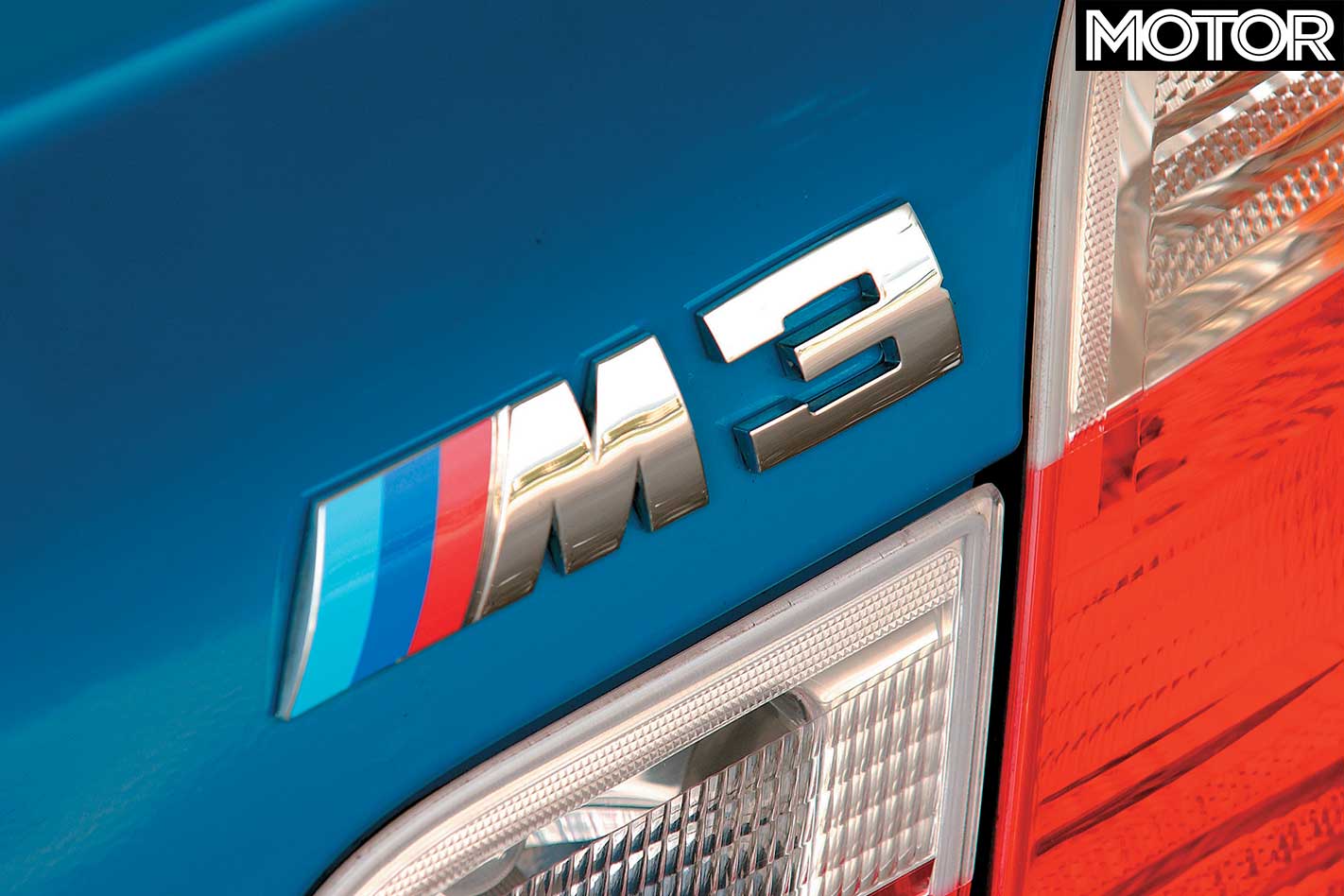
Five M3 Moments – Top down, third gear, through a tunnel. Heaven! – SMG is actually a good match for manic straight six – Matching blue leather interior might be a bit much, but everyone will notice – It’s a two-door convertible but it’s still practical enough to be your only car – Playful oversteer on wet tarmac demands quick reactions
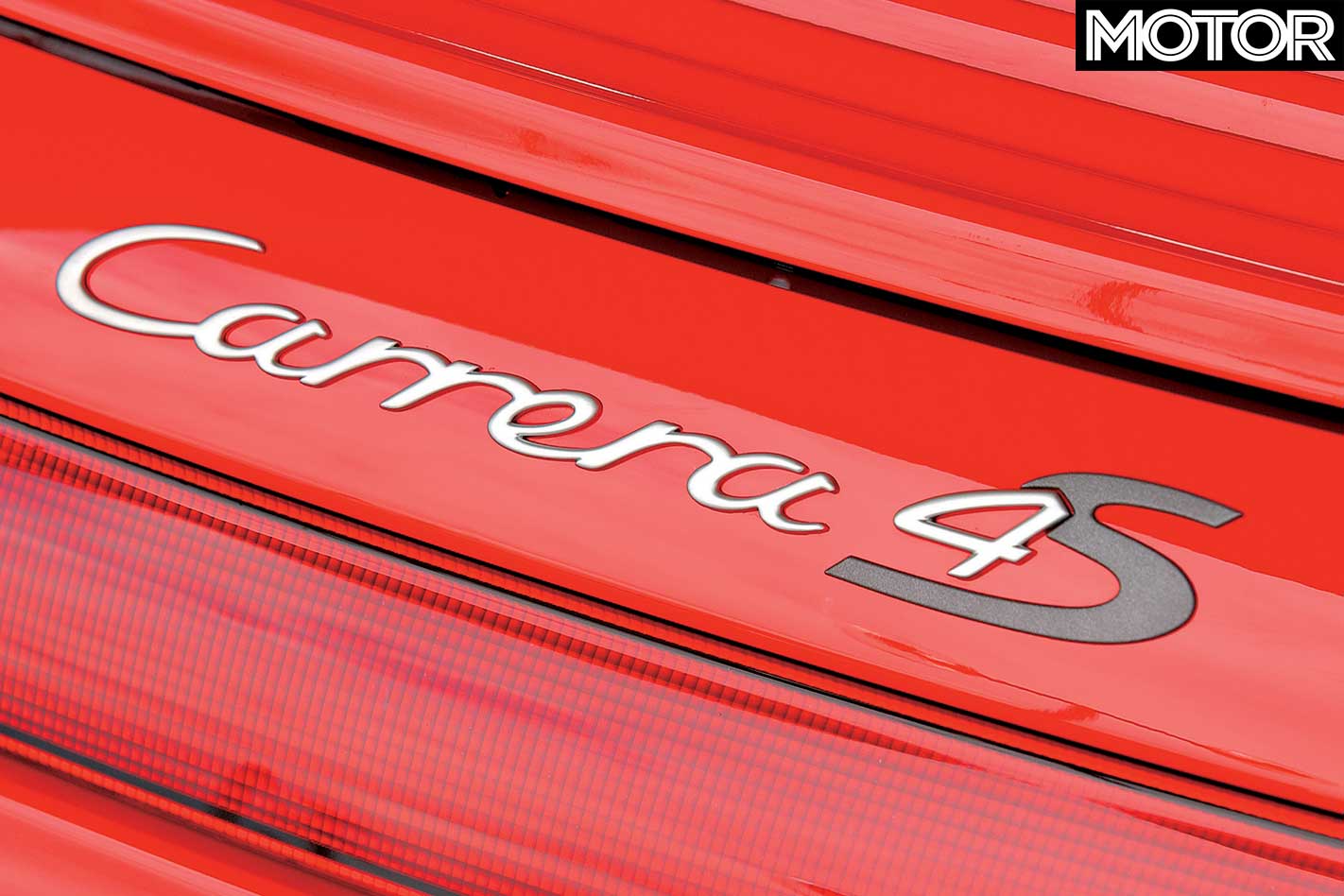
Five Porsche dos and don’ts – Do… find your favourite bit of blacktop. It’ll be better than you ever imagined. – Don’t… try to sneak a few minutes in a handicapped parking space. MT! – Do… drive through Macca’s with the top down. You’ve always wanted to. – Don’t… get the Tiptronic. The manual is perfection. – Do… buy a bright colour. It rocks in Guards Red
Four Play
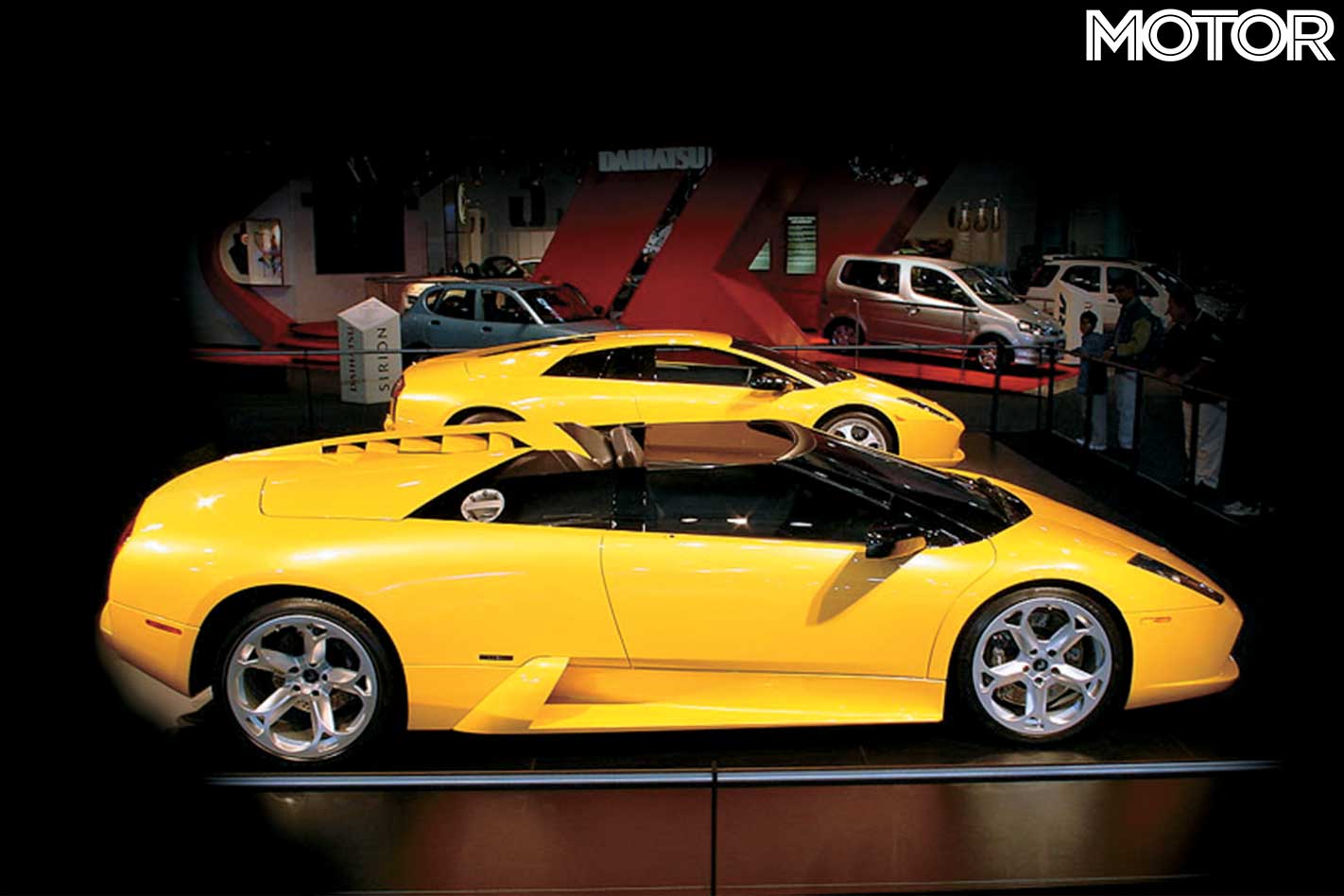
There are just four all-wheel-drive open-top sports cars in the world. Porsche has two with the Carrera 4S Cabrio and Turbo Cabrio, Audi has one with the TT roadster quattro and Lamborghini’s upcoming Murciélago Barchetta will be the fourth.
Shown in concept form at the 2003 Detroit motor show, the Murciélago roadster will share the coupe’s 426kW 6.2-litre V12, six-speed manual and all-wheel drive system, giving 300km/h-plus potential. Expect to see it in production by year’s end. The open-top Murciélago will be joined by a 5.0-litre V10 Gallardo Barchetta in 2006.

